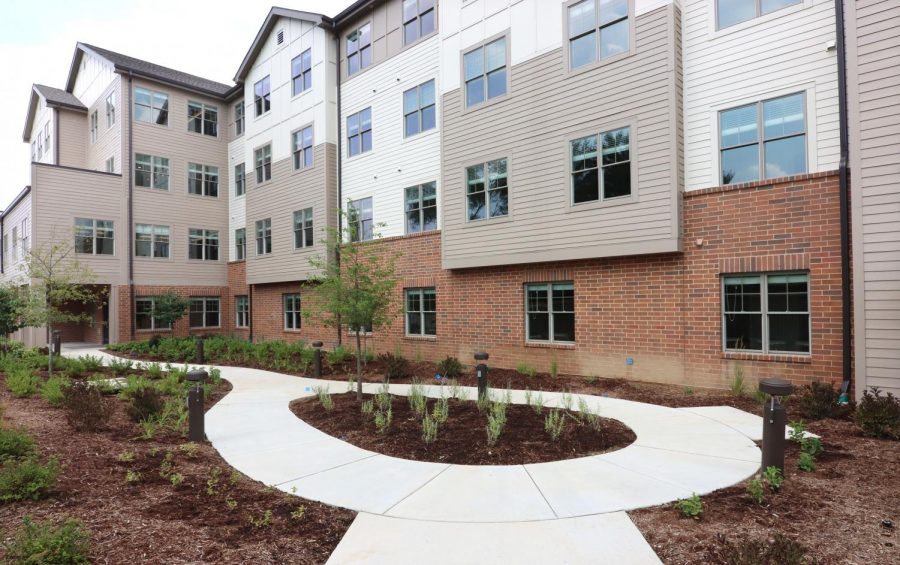Green Park Mayor Tony Konopka is requesting that city officials work to “rein in” rental property, but the city’s administration is short on manpower.
At a work session last week to discuss various issues, the Board of Aldermen talked at length about methods to possibly discourage rental properties in Green Park.
After some aldermen made administrative requests for a list of rental properties in the city as well as a business directory to be funded through an administrative fee on businesses, board members agreed to explore the option of adding a part-time or full-time city employee within the next three months.
Konopka said at last week’s session that the city’s administrative office has the equivalent of 1.5 employees.
The focus on the administration’s lack of manpower began after Konopka asked the board to discuss ways to discourage rental properties, which he and several aldermen identified as having possible maintenance issues that could drive down neighboring property values.
“We need to do something to rein in rental property,” he said. “We need to make it so that it isn’t profitable for people to buy property with the sole intention of renting …
“You find out if it’s rental when it comes time for the occupancy permit. My idea is we need to have some type of permit for rental property that if the property owner is going to recoup the amount of that permit, you have to put it into the rental. Then the rent would be high enough that you might be drawing a whole different type of people in.”
Konopka proposed that the city charge $1,000 to $1,500 per year for a property owner to obtain a rental permit.
City Attorney Paul Rost also said city officials might want to consider establishing an environmental court that could address issues with maintenance codes more swiftly than St. Louis County.
“You’re never going to be able to legislate good neighbors,” he said. “… But you can do things. You could start looking into setting up your own court system for certain types of violations. You could get people in and out and not have to waste time with continuances. You could speed it up that way.”
Rost also cautioned the board that if it wants to discourage rental properties, it should focus more on improving the city than excluding citizens.
“You have to be very careful about telling people where they can live,” Rost said. “You’ve got to be careful about setting minimum square footage to live. There’s a lot of cases out there now. That in itself is discriminatory because then sometimes people have to buy a bigger house …
“For the city to get involved in actually excluding certain types of people, that’s where you run into a problem. So the first premise you’ve got to get away from is to have an ordinance that is designed to exclude people. So you’ve got to come at it from the angle of property maintenance, which is home values, which is aesthetics, which is all of that. We have to come at it on the side of ‘What are we trying to achieve?’ Not ‘What are we trying to keep out?’
But when Ward 2 Alderman Tim Thuston, Ward 3 Alderman Mark Hayden and Rost proposed that the administration compile a list of rental properties within the city as a starting point, City Administrator Zella Pope told them she simply lacks the employees to do it.
“Do we even know how many rentals we have?” Rost said.
“No,” Pope said. “I have no idea. How would we know?”
“I don’t know what we have,” Rost said. “We need to really look at what we’re doing so far and start studying whether it’s working or not …”
“Do we have a list of those properties that are rented and if they’re in compliance?” Hayden said.
“There is no list,” Pope said. “They come in. They apply for an occupancy permit. On their occupancy permit, it is marked owner-occupied or renter-occupied. And that’s marked.
“But then when that is done, it’s put in that file. And until somebody wants to go through those files in the file cabinet, we don’t know,” she added.
“So we know what it is right now,” Hayden said. “Start right now.”
“Start now,” Thuston said. “Build a database …”
“That is totally, manpower-wise, that is totally impossible,” Pope said. “It would take months and months.”
“If I gave you a piece of paper, you can’t log it on a spreadsheet?” Hayden said.
“Who’s going to go back there and pull all those files?” Pope said.
“… We need another full-time person,” Ward 2 Alderman Jackie Wilson said.
“This is where we’re going,” Konopka said. “Right now, we have the equivalent of one and a half people working here. Everything these people are talking about, that’s all well and good. But it’s pie in the sky right now, this spreadsheet …”
“Until we do make a determination … put all the occupancy permits in my file and I will create a spreadsheet on my own,” Hayden said.
“We can’t do that,” Pope said.
“Why not?” Hayden said.
“First of all, they can’t leave the building,” Pope said.
“I’ll just do them here,” Hayden said. “I can write it out on a piece of paper … put it on a spreadsheet and e-mail it to you.”
Later, Hayden proposed that Zoning Administrator Jack Graves, who Pope said works “two or three times a week” to inspect and follow up on building-code complaints, work to form a list of rental properties.
But Konopka said he would rather use Graves’ services “on the street” than in city offices.
“He is the code-enforcement officer,” Hayden said. “Why don’t we delegate the permit and creating this list to him and pay him an extra hour a week to create that list?”
“… I’d rather have Jack out on the street going door to door,” Konopka said.
“If he’s out there 22 hours, put him in here for another hour,” Hayden said.
“I’d rather have him out on the street going to door,” Konopka said.
“But going back to your (Konopka’s) original statement, aren’t we trying to fix the rental properties?” Thuston said. “Isn’t that what this whole discussion has been about?”
“If we don’t know where rental properties are, how are we going to do anything about it?” Hayden said. “And if we do know where they are, we can start with that. It’s so simple.”
“But we have a starting point,” Konopka said.
“The starting point is identifying where they are,” Hayden said. “And then taking what we’ve already got in place and strictly enforcing that they maintain it.”








